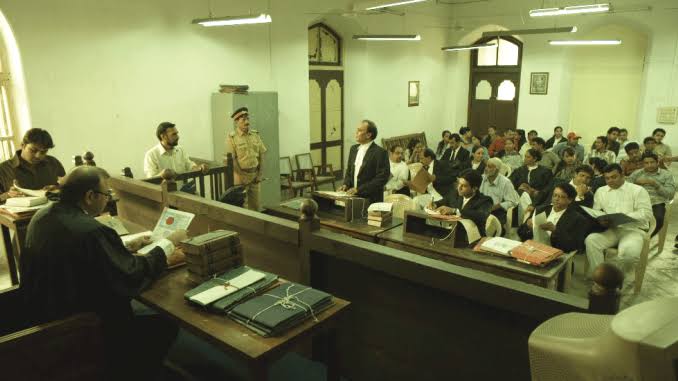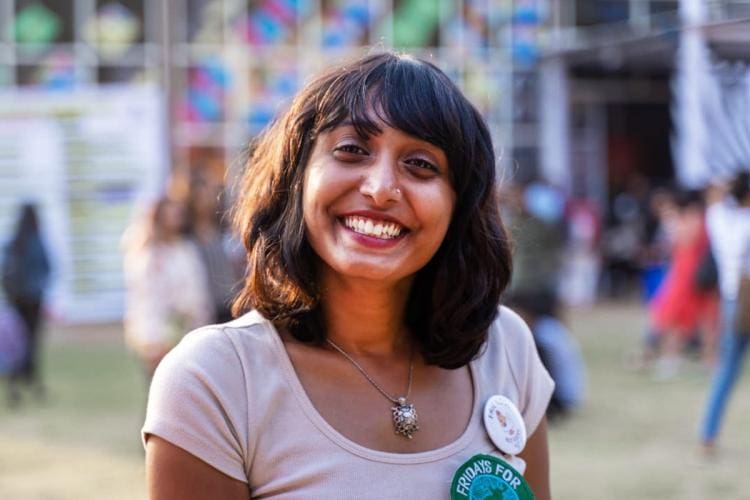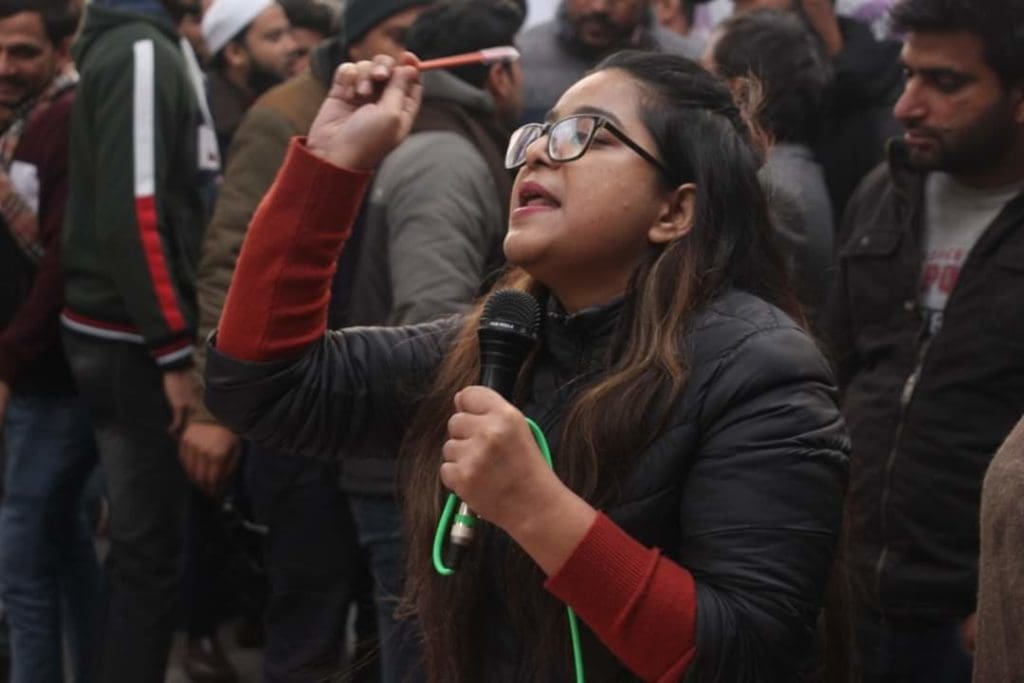
Disha Ravi has been granted bail by a Delhi court in the ‘toolkit case’. “Considering the scanty and sketchy evidence on record, I do not find any palpable reason to deny bail”, noted Additional Sessions Judge Dharmendra Rana of Patiala House Court. The same judge Dharmendra Rana was presiding over the bail hearing of Jamia Millia Islamia student leader Safoora Zargar, in an equally fictitious case, but he reportedly denied the bail saying, “if there is prima facie existence of evidence of a conspiracy, the evidence of acts or statements made by one of the conspirators in furtherance of the common object is admissible against all”. Safoora, unlike Disha, doesn’t have the privilege that comes with the Hindu identity in India. It is about time that we discussed Hindu privilege and Islamophobia ingrained in the judiciary in particular and the Indian state and its citizens in general.
While the persistent discrimination in employment, education and almost every single public domain is being discussed right now, mostly by Muslim activists, it is important that we look into the institutional prejudice of the state in dealing with citizens of different communities, especially Hindus and Muslims. The issue of Muslim discrimination in public sphere of the Indian society is viewed in ‘communal-secular/Hindu-Muslim’ framework supported with statistical data and belief that Indian state was/is inherently secular, thereby barring any space to question the state for dealing the ‘Muslims’ differently in the day-to-day affairs. This is something which cannot be compiled in a list, or summed up in a graph. It is subtle and covert, thus posing problems for social measurement but it exists. I argue that Indian state is inherently Islamophobic, as most of its citizens, and that is the premise of discrimination. This inherent Islamophobia manifests itself in different – rather all – forms, from denying access to housing and education to treating Muslims unequally in a courtroom. The manifestation of subtle and normalised Hindu privilege and Islamophobia remains seemingly unacknowledged, undocumented and under-investigated social phenomenon.
India is inherently a “Hindu” country: in character, in structure and in culture. Muslim citizens of India, quite naturally, have to create of life of their own, facing and challenging the boundaries created by the Hindu majority. It is only marginally ‘secular’ in a way that individuals are treated equally in a particular set of rules and procedures but this secularisation fails to take into account the fact that the system is created in a way that favours Hindus and discriminates against Muslims. Therefore, although ensuring equality at the outset, it has the consequence of producing and enforcing Islamophobia. The ‘communal-secular/Hindu-Muslim’ framework is designed to overlook the historical conscience collective of ‘Hindu-ness as a norm’. The studies on Hindu-Muslim relations in India overlook ‘Hindu-ness’ and problematize the other, in this case, Muslims in relation to Hindu-ness. In other words, the imagination of an ideal Indian citizen is that of a Hindu, hence leaving Muslims to redefine themselves constantly to fit that Hindu imagination of citizenship.


To simplify it, the dialogue from web series Pataal Lok, “Ye jo duniya hai na, ye ek nahi teen duniya hai. Sabse upar Swarg Lok, jisme Devta rahte hain. Beech mein Dharti lok jisme insaan rahte hain, aur sabse neeche Paatal Lok jaha keede rahte hain” is useful. The people of Dharti Lok are Hindus while Muslims inhabit the Paatal Lok. The laws that exist were created for, by a Hindus majority, considering only Hindus in mind. The laws work flawlessly, in most of the cases, when the subject is Hindu. When it comes to Muslim subjects, the law fails to function normally. This Hindu privilege is the standard, surpassing all political leanings and ideologies, crimes and professions. The laws work on the basis of Hindu standard, serving more or less justice to good or bad Hindus. For Muslims, it has never been imagined and thus is left to the mercy of the one who’s enforcing or practicing the law.
The Hindu bias coupled with Islamophobia has always been in the Indian state from the very beginning. India’s founding ‘fathers’ or Congress leaders at the time meant to create an India like it is today and hence the Congress rejected the Cabinet Mission Plan’s idea of federation with a weak centre which led to partition. Jinnah was ready to accept the plan, as is brilliantly revealed by Prof Ayesha Jalal in her book ‘The Sole Spokesman’ and it was Congress’s reluctance to share power with ‘Muslims’ and other minorities that led to partition. Stating about the bias in the Indian constitution, Pritam Singh, Professor at Oxford University writes, “…Hindu bias must be seen in the larger context of the continuation of Hindu bias in the national movement for India’s independence, and the worldview of most of the leaders of the movement, including Mahatma Gandhi. The rise of Hindutva forces can be considered more a continuation and deepening of that bias than rupture with it”.


Rochana Bajpai, Senior Lecturer in Politics at School of African and Oriental Studies (SOAS), in ‘Constituent Assembly Debates and Minority Rights’, writes, “Congress no longer had to conciliate a powerful Muslim League and had few real checks in the way of pushing its agenda through” with regard to Congress’s stand on minority rights. The real checks Rochana Bajpai is referring to is the Sikh representative in the constituent assembly debate, Hukam Singh, who said, “the Sikhs feel utterly disappointed and frustrated. Let it not be misunderstood that the Sikh community has agreed to this constitution. I wish to accord an emphatic protest here. My community cannot subscribe its accent to this historic document…there is enough provisions in this Constitution…to felicitate the development of administration into fascist state”.
Further, Hindu privilege was given constitutional sanction by the constitutional assembly when it included Article 25 clause (2) subclause (b) which states, “providing for social welfare and reform or the throwing open of religious institutions of a public character to all classes and sections of the Hindus…”. This was done with two agendas in mind: 1) to provide for social welfare of Hindu religious institutions, and 2) to assimilate all Indic religions in the Hindu fold. Both the agendas, interestingly, perfectly align with the idea of Hindutva which the Congress was supposedly opposing. In this context, we should realise and acknowledge the corrupted idea of democracy the constituent assembly was practicing. It is no different from the kind of democracy India is practicing today…a majority of Islamophobic, anti-Minority Hindu men bullying and forcing their agenda upon the minorities.
Coming back to Hindu Privilege and Secularism, it is important to understand ‘Hindu-ness as a norm’ and the role it plays in sustaining Hindu privilege and marginalising others. American sociologist W.I. Thomas suggested that, “If people define situations as real, they are real in their consequences”. As social facts, both ‘Islamophobia’ and ‘Hindu privilege’ are real situations in Indian society; and as real situations, both ‘Islamophobia’ and ‘Hindu privilege’ issue into real consequences. Thereby structuralising and institutionalising it. As a result, Muslim existence in itself is problematised vis a vis the definition of Hindu as ideal citizens. Muslims become Okhla, a city within a city. It is a part of Delhi – the national capital, but not its charm or glamour. It shall not have wider roads, cleanliness, or facilities Delhi boasts of. It shall remain Paatal Lok. While Delhi outside of Okhla has privileges, state gives Hindu people privilege to assert their citizenship in ways Muslims can never think of, such as (but of course not limited to) writing fiery affidavits in court trials (case in point, Kunal Kamra), making bold statements inside courtroom (case in point, Disha Ravi), being penalised one rupee as symbolic fine (case in point, Prashant Bhushan), blocking roads and railway stations as means of protest (case in point, Farmers’ protest), public display of religious symbolism without getting tagged as communal (case in point, every Hindu politician in India).
Muslims in India are living in an asymmetrical relationship, which in the words of sociologist is Peter Hall defined as, “Asymmetric relationships are those in which one party is capable of disproportionately imposing their will on the other and setting conditions, making decisions, taking actions, and exercising control which are determinative of the relationship”. Thus, Hindu privilege and Islamophobia also has to do with power relations between the two communities. The gigantic power inequality gives Hindu society the agency to define everything from their own worldview, while forcing Muslims to accept it as standard. Hindu privilege, in my opinion, is also one crucial aspect in the rise of Hindu nationalism as it is theorised upon superior Hindu and inferior Muslim relation. Hindu Nationalists have politicised the privilege that always was there as the social system.
There are plenty of contemporary examples from within the courtrooms to reveal what wonders Hindu privilege can do but I wouldn’t mention as it reduces the whole point to individual acts of discrimination. This is not about some bad judgements under the influence of some bad governments, rather a system in which Hindu people as a community are prioritized and pampered more than the Muslims. 21 percent of all undertrials in jails are Muslims. National Crime Records Bureau (NCRB) data reveals Muslim population is 27 percent in the state of West Bengal but they constitute almost half (47 percent) of the total undertrial prisoners in the state’s jails. It is not limited to courtrooms or judiciary either. It is in news media, television and films, sports, everywhere. Reducing it merely to judiciary or Disha’s bail would be injustice to Muslims who survive and fight it daily.
Sharjeel Usmani is a national secretary of Fraternity Movement, former student of political science in Aligarh Muslim University and an independent researcher in ethnic violence in India.



